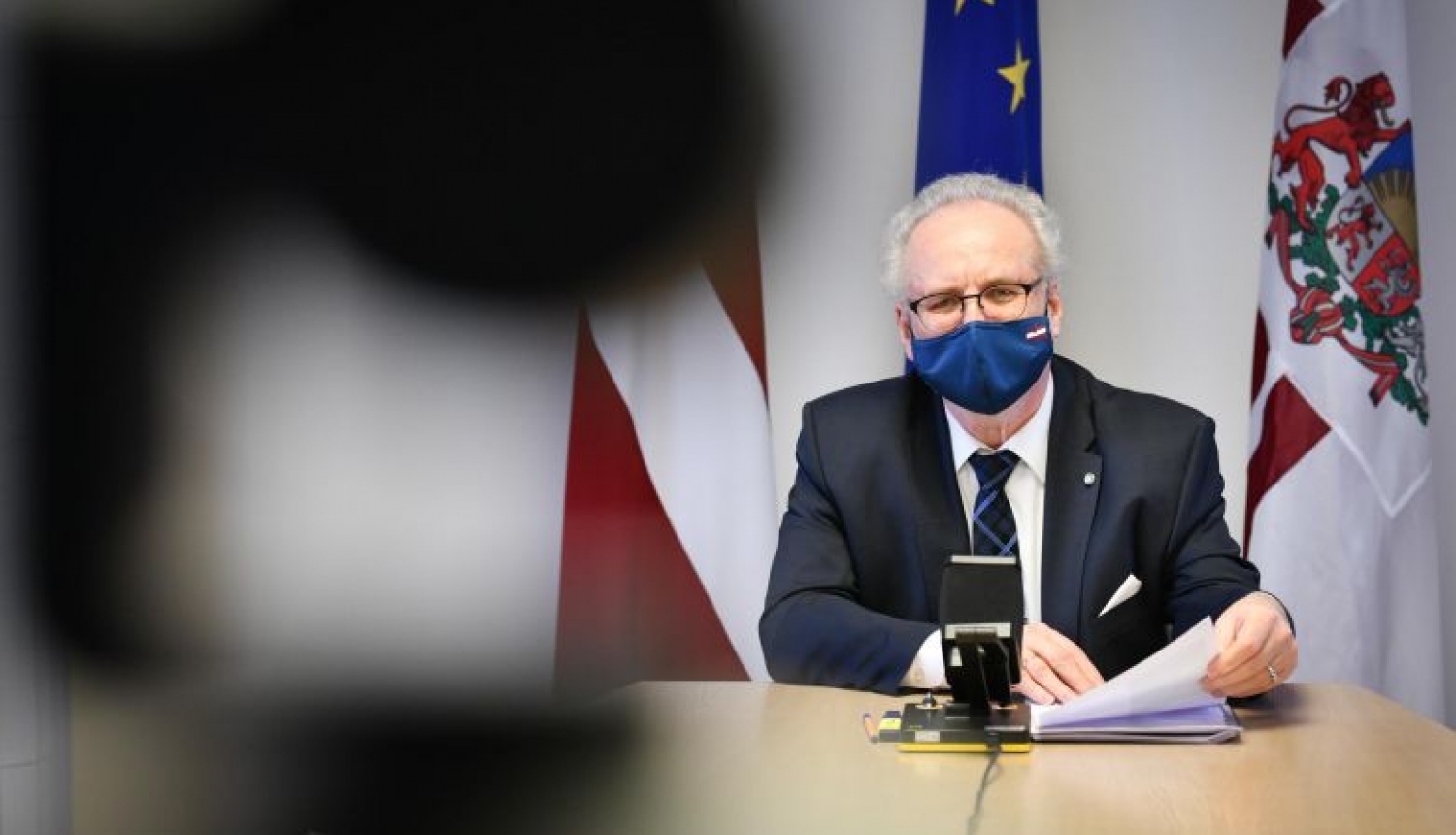Meeting focused on national and international dimensions of intangible cultural heritage law, discussion about the scope of national Intangible Cultural Heritage Law and UNESCO Convention for the Safeguarding of the Intangible Cultural Heritage. President underlined that the Preamble of Satversme (Constitution) creates an unbreakable bond between Latvian culture and language, the two pillars of the Latvian State. He also highlighted the role of the state in supporting both tangible and intangible culture.
Līga Ābele emphasised that one of the problems is that ‘because of wars and occupation, the natural order for passing traditions down from generation to generation has been demolished’. President Levits reminded that the aim of totalitarian regimes was to take knowledge about own history away from people, break the continuity, limit any communication between people and then use propaganda to raise a rootless young generation. Soviet regime was unsuccessful at that, although the damage it did was obvious. That is why President Levits believes Latvia depends on general memory policy and support for intangible culture, and traditions need to be preserved in all their diversity as part of quality of people’s life.
Anita Vaivade underlined that when considering various intangible cultural heritage policies and initiatives, the main focus should be on an individual or common desire to nurture traditions. Safeguarding of intangible heritage relies on horizontal cooperation between authorities, added Mrs Ābele. For example, as far as life-long learning is concerned, Ministry of Education and Science should be heavily involved in the planning, and in the case of support instruments, Ministry of Economy should join the process.
Another topic discussed during the meeting was communities, their origins and preservation, promoting of traditions and commercialisation, protection of intellectual property rights of traditional skills and crafts.
In conclusion, President of Latvia wished Mrs Vaivade and Mrs Ābele good luck in future research activities.




